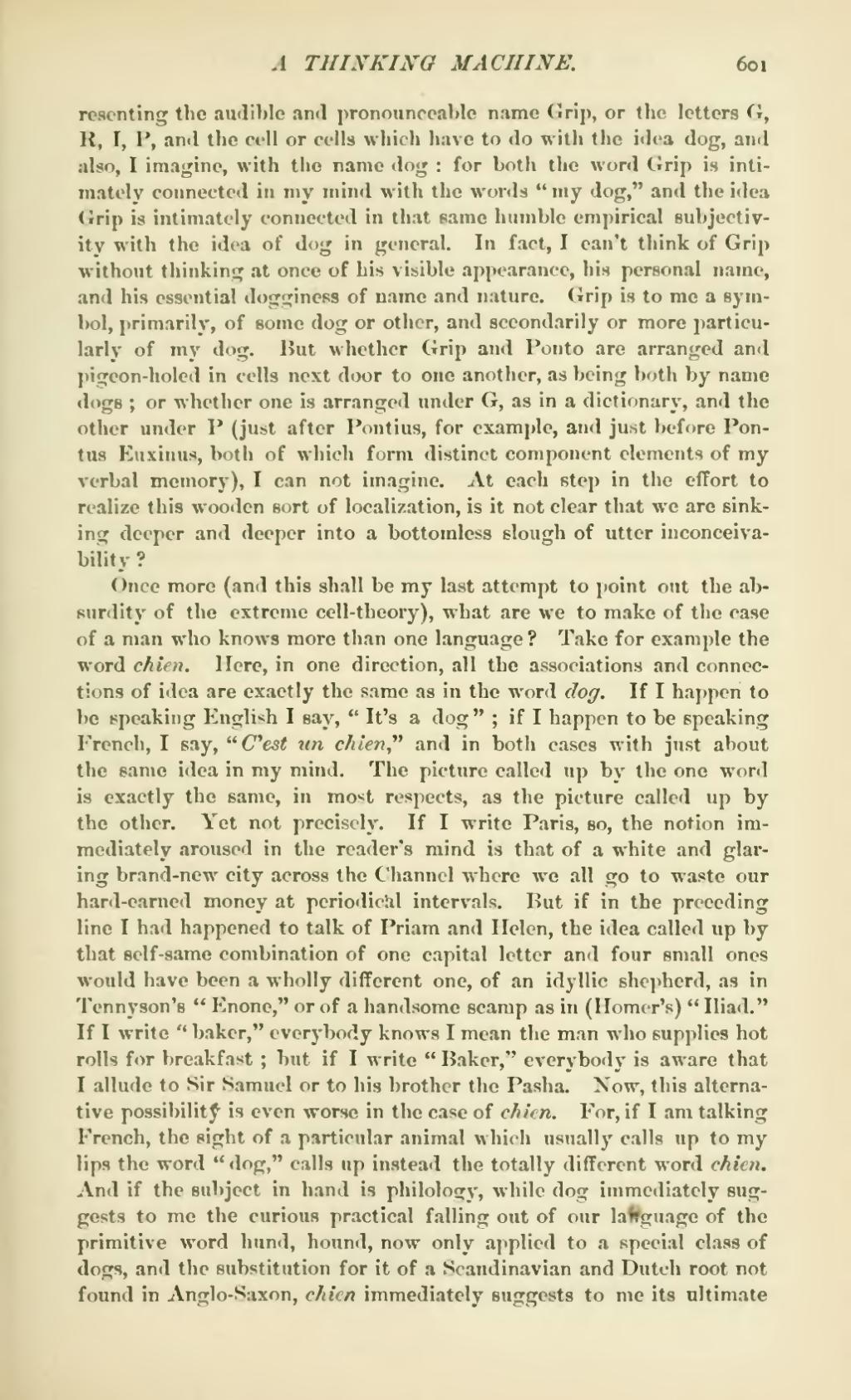resenting the audible and pronounceable name Grip, or the letters O, R, I, P, and the cell or cells which have to do with the idea dog, and also, I imagine, with the name dog: for both the word (Grip is intimately connected in my mind with the words "my dog," and the idea drip is intimately connected in that same humble empirical subjectivity with the idea of dog in general. In fact, I can't think of Grip without thinking at once of his visible appearance, his personal name, and his essential dogginess of name and nature. Grip is to me a symbol, primarily, of some dog or other, and secondarily or more particularly of my dog. But whether Grip and Ponto are arranged and pigeon-holed in cells next door to one another, as being both by name dogs; or whether one is arranged under G, as in a dictionary, and the other under P (just after Pontius, for example, and just before Pontus Euxinus, both of which form distinct component elements of my verbal memory), I can not imagine. At each step in the effort to realize this wooden sort of localization, is it not clear that we are sinking deeper and deeper into a bottomless slough of utter inconceivability?
Once more (and this shall be my last attempt to point out the absurdity of the extreme cell-theory), what are we to make of the case of a man who knows more than one language? Take for example the word chien. Here, in one direction, all the associations and connections of idea are exactly the same as in the word dog. If I happen to be speaking English I say, "It's a dog"; if I happen to be speaking French, I say, "C'est un chien," and in both cases with just about the same idea in my mind. The picture called up by the one word is exactly the same, in most respects, as the picture called up by the other. Yet not precisely. If I write Paris, so, the notion immediately aroused in the reader's mind is that of a white and glaring brand-new city across the Channel where we all go to waste our hard-earned money at periodical intervals. But if in the preceding line I had happened to talk of Priam and Helen, the idea called up by that self-same combination of one capital letter and four small ones would have been a wholly different one, of an idyllic shepherd, as in Tennyson's "Enone," or of a handsome scamp as in (Homer's) "Iliad." If I write "baker," everybody knows I mean the man who supplies hot rolls for breakfast; but if I write "Baker," everybody is aware that I allude to Sir Samuel or to his brother the Pasha. Now, this alternative possibility is even worse in the case of chien. For, if I am talking French, the sight of a particular animal which usually calls up to my lips the word "dog," calls up instead the totally different word chien. And if the subject in hand is philology, while dog immediately suggests to me the curious practical falling out of our language of the primitive word hund, hound, now only applied to a special class of dogs, and the substitution for it of a Scandinavian and Dutch root not found in Anglo-Saxon, chien immediately suggests to me its ultimate
